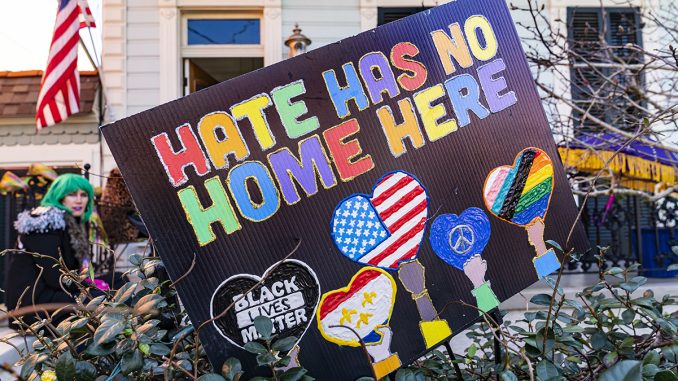
The social networking platform Nextdoor bills itself as an app to bring neighbors together, claiming that “connecting with others is a universal human need,” but it relies upon the Southern Poverty Law Center, a far-left smear factory, to determine which groups are too “hateful” to be good neighbors.
Nextdoor recently banned a Tennessee chapter of the concerned parents group Moms for Liberty after neighbors reportedly complained about the group being on the site. The ban took place exactly one week after the SPLC put Moms for Liberty—including the Hamilton County, Tennessee, chapter—on a “hate map,” along with chapters of the Ku Klux Klan.
“As a mom and former teacher in the community who cares deeply about the future of our children, I think it is ironic that a company that aims to bring communities together has targeted a large group of our community members by canceling us. We cannot communicate with our community,” Tonya Dodd, chapter chair of the Hamilton County Moms for Liberty, told The Daily Signal.
“They canceled us using the list from SPLC, which falsely suggests we belong among truly hateful and terror groups like the KKK,” Dodd added. “That’s the exact opposite of what we truly are.”
Nextdoor did not specifically cite the SPLC when notifying Moms for Liberty that it had been “permanently removed from the platform,” but it cited company policies against “hate” that explicitly reference SPLC.
“Your group, Moms for Liberty Hamilton County, was recently reported by neighbors in the Nextdoor community for promoting hate speech/symbols, content from hate groups, and hate-based conspiracy theories and misinformation [and for] promoting misinformation related to the U.S. election, COVID-19, the U.S. Census,” Nextdoor wrote in an email on June 13.
“We’ve reviewed the group and have determined that it violates our group guidelines,” the company added. “As a result, we’ve permanently removed it from the platform.”
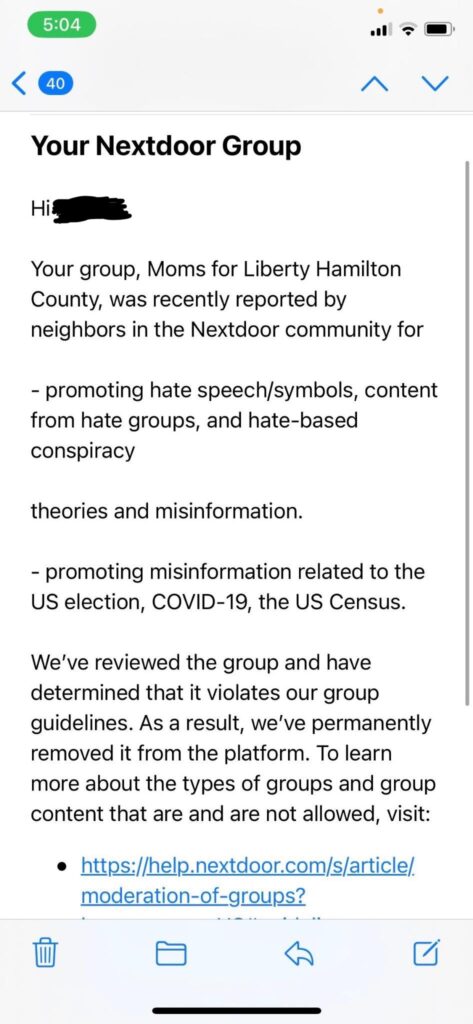
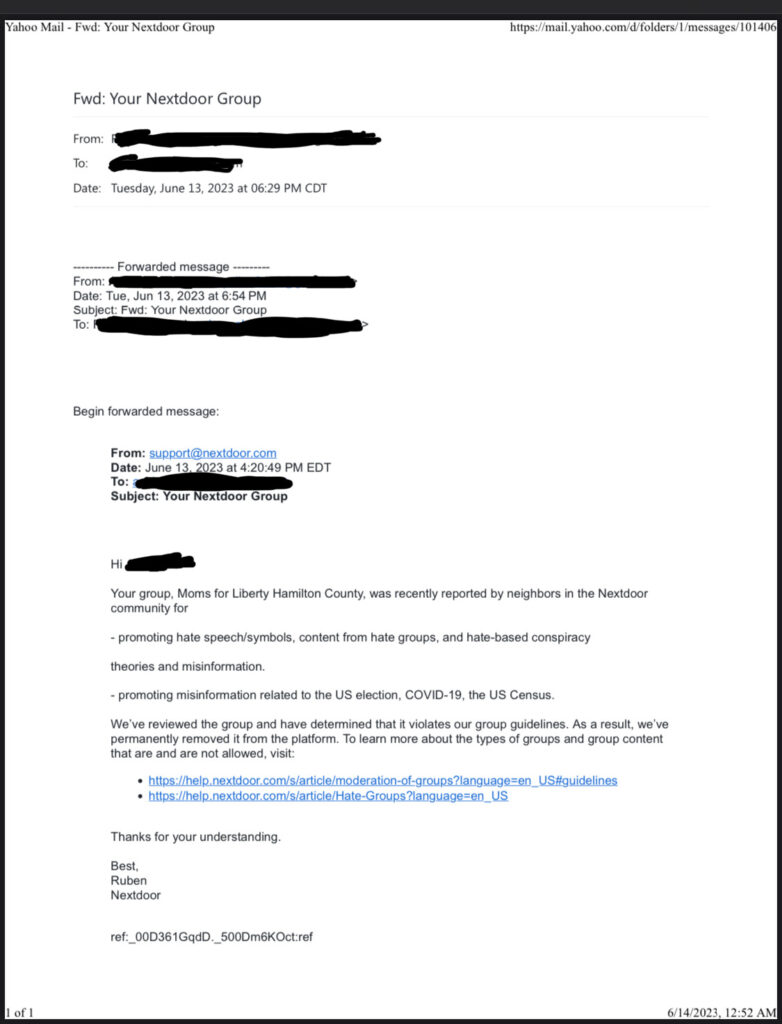
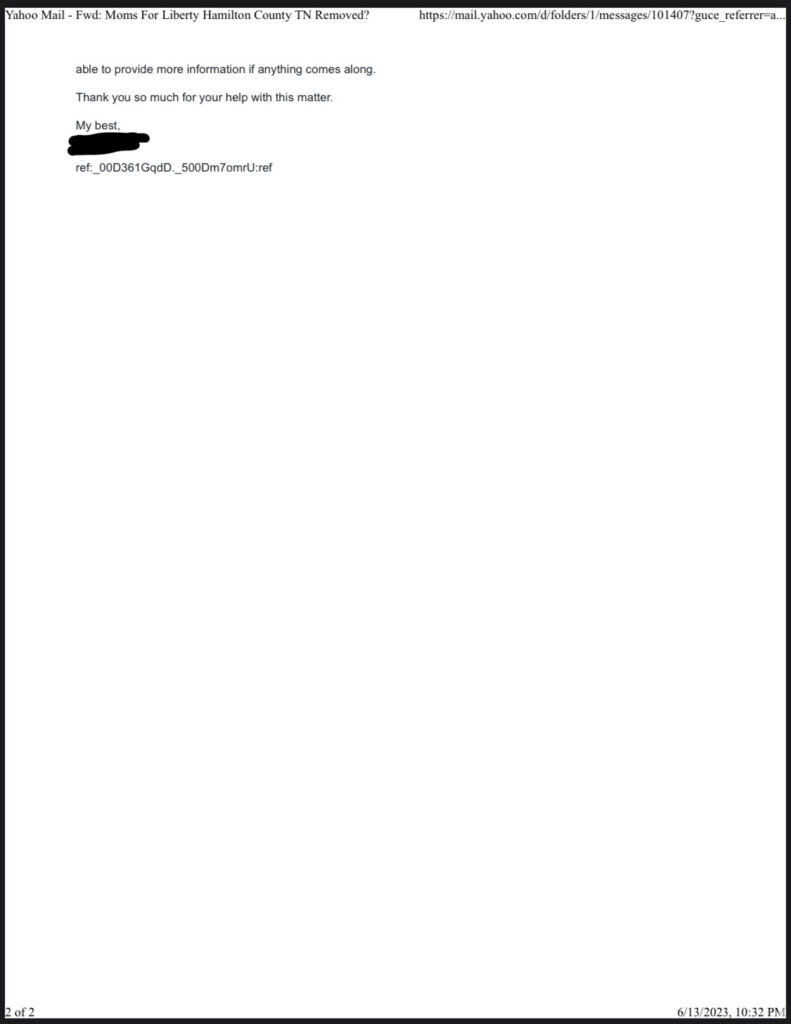
The company’s policy on “Hate & Terror Groups” may shed some light on the situation.
“There is no place on Nextdoor for hate or terror groups,” the policy states. It defines a “hate group” as “an organization that has beliefs or practices that attack or malign a class of people, typically for their immutable characteristics or identity, including race, religion, disability, medical condition, housing status, age, sexual orientation, national origin, immigration status, ethnicity, gender, or gender identity.”
This language closely echoes the SPLC’s definition of a “hate group,” and that appears to be no coincidence. The policy states that “when designating hate and terror groups, Nextdoor may reference lists compiled by organizations such as the U.S. State Department, Southern Poverty Law Center, and the Anti-Defamation League.” In the text for “Southern Poverty Law Center,” Nextdoor provides a link to the SPLC’s “hate map.”
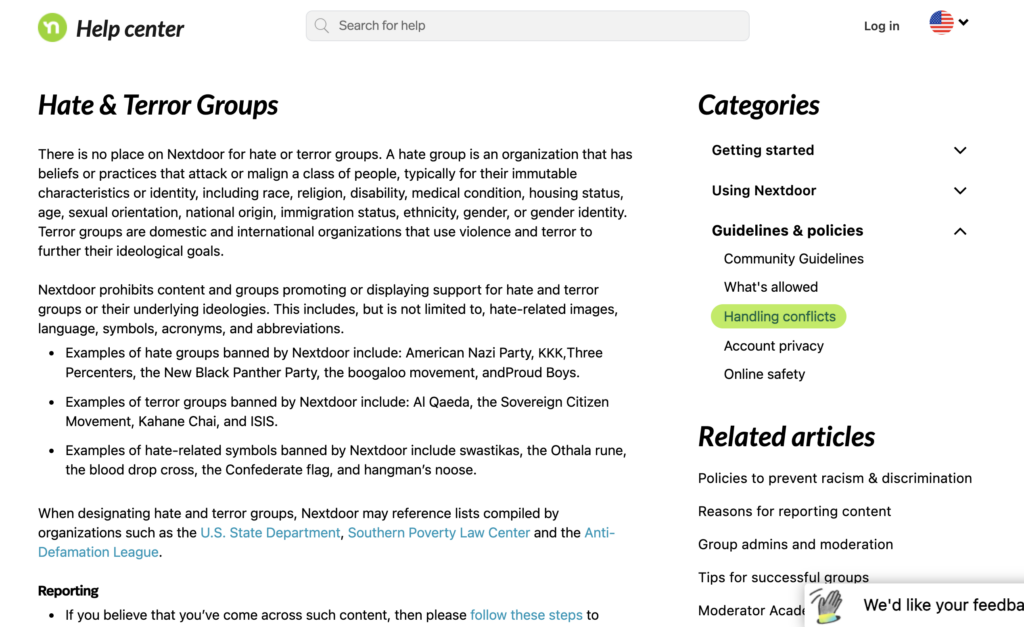
I wrote in my book “Making Hate Pay” that the SPLC trades on its history of suing Ku Klux Klan groups into bankruptcy by branding mainstream conservative and Christian organizations “hate groups,” putting them on a map with KKK chapters. Amid a racial discrimination and sexual harassment scandal in 2019, the SPLC fired its cofounder. At the same time, a former employee came forward, calling the “hate” accusations a “highly profitable scam.” A terrorist even used the SPLC “hate map” to target the Christian nonprofit Family Research Council for an attempted mass shooting in 2012.
On June 6, the SPLC added parental rights groups—including Moms for Liberty—to its “hate map,” branding them “anti-government extremist groups” and part of an “anti-student inclusion movement.”
This attack represents an attempt to silence critics of the sickening leftward lurch in education. The SPLC is no neutral observer. It supports that cultural trend, championing transgender lessons, sexually explicit books in school libraries, and critical race theory, which frames America as an institutionally racist country and blacks as inherently oppressed.
Shortly after the SPLC added parental rights groups to the “hate map,” activists started pressuring companies like Nextdoor to ban members of Moms for Liberty.
“[Nextdoor,] Please ban members of Moms for Liberty from your platform! [The SPLC] has declared M4L an anti-LGBTQ HATE group!!” a Twitter user in Barrington, Illinois, tweeted at the Nextdoor Twitter account. After naming the Moms for Liberty chapter leader in Cook County, the user added, “She & other M4L are moderators who censor anti-M4L posts.”
Nextdoor appeared to take the complaint seriously, even though the SPLC had not branded Moms for Liberty “an anti-LGBTQ hate group.” (SPLC reserves that accusation for conservative Christian groups like the Family Research Council and Alliance Defending Freedom.)
“We’re sorry to hear that this is happening in your neighborhood, neighbor,” the company replied. “We’d love to look a bit further into this issue. Please reply via DM [direct message] with your email address with the relevant details, and a member of our Nextdoor Support Team will reach out directly via email.”

Nextdoor did not respond to The Daily Signal’s request for comment by publication time. The leader of the Cook County Moms for Liberty did not respond to The Daily Signal’s request for comment about whether she had faced any repercussions on the platform.
While Nextdoor claims to be policing “hate,” by relying on the SPLC, it is pitting neighbor against neighbor over political views. Companies have no business relying on a discredited smear factory like the SPLC when it comes to “hate,” and neighbors should not use the SPLC to demonize one another.
Have an opinion about this article? To sound off, please email letters@DailySignal.com and we’ll consider publishing your edited remarks in our regular “We Hear You” feature. Remember to include the url or headline of the article plus your name and town and/or state.

Be the first to comment